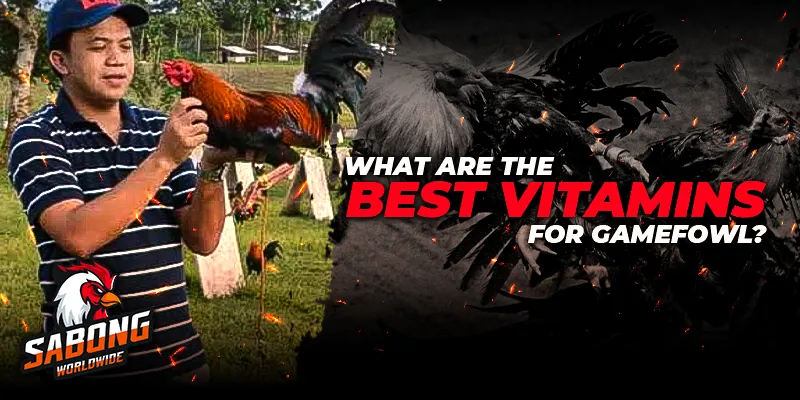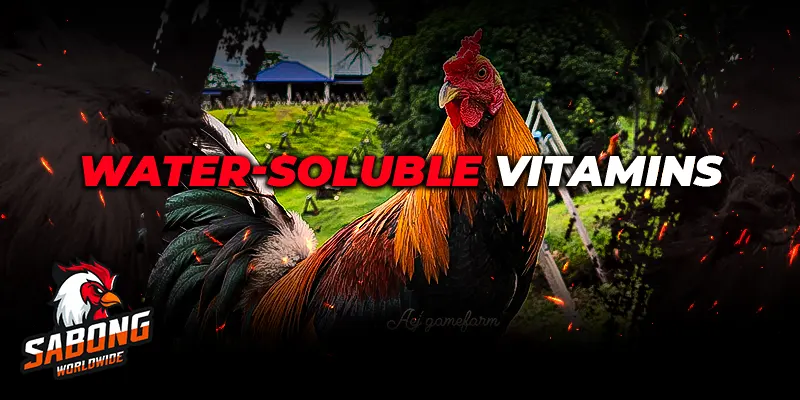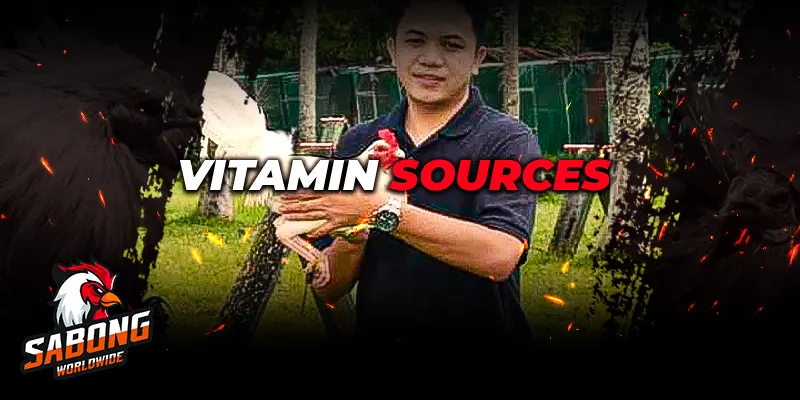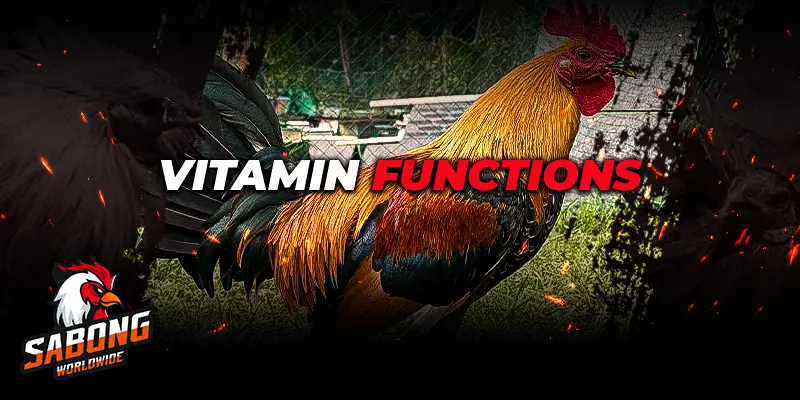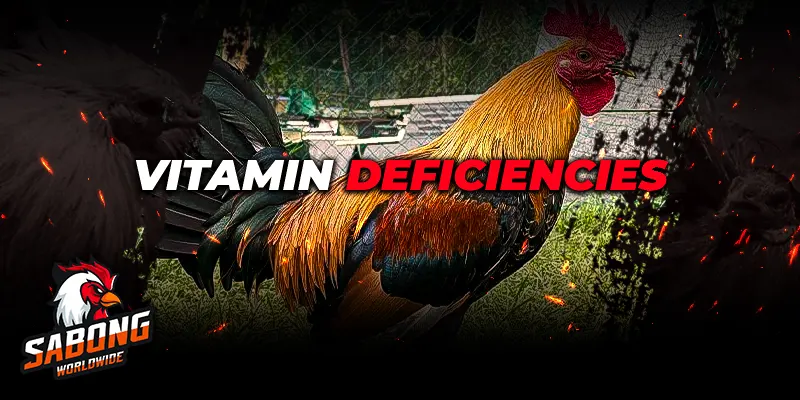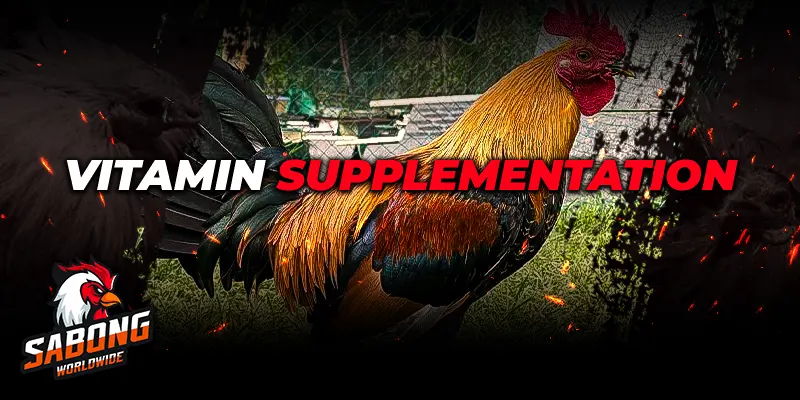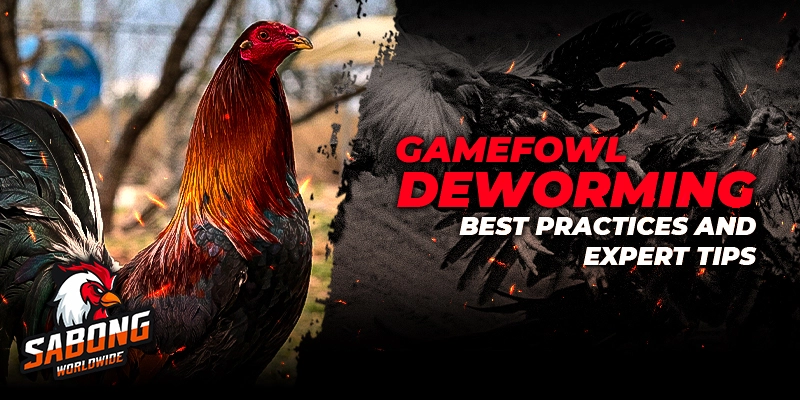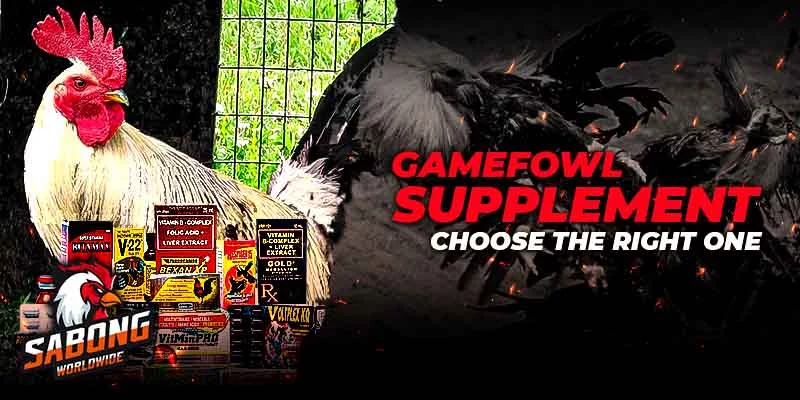As gamefowl breeders, it’s important for us to ensure our birds receive the right vitamins for optimal health, growth, and performance. Vitamins support various vital functions, from boosting the immune system to developing strong muscles and bones.
Understanding the best vitamins for gamefowl at different life stages through a balanced diet is important for their longevity and well-being, allowing us to maintain high standards in gamefowl care.
Fat-Soluble Vitamins
These vitamins are stored in the body’s fatty tissues, like a reserve. Here are the important ones that need fat to be absorbed:
Vitamin A
This vitamin supports vision, immune function, reproduction, and embryonic development. Good sources include carrots, sweet potatoes, and green leafy vegetables.
Vitamin D
Vitamin D helps the body use calcium and phosphorus, which are important for strong bones and eggshells in birds. Birds can get Vitamin D from sunshine or by eating fish oil and some plants.
Vitamin E
A powerful antioxidant, vitamin E, protects cells from oxidative damage. It’s found in plant oils, green leafy vegetables, and wheat germ.
Vitamin K
This vitamin helps your bird’s blood clot properly and strengthens their bones. Gamefowl can get it from leafy green vegetables, and their bodies can also make some of it.
Water-soluble vitamins
Unlike fat-soluble vitamins, these vitamins aren’t stored in the body. They need to be replaced often through a bird’s diet.
Vitamin C
Vitamin C is an antioxidant, supports the immune system, and aids in wound healing. While birds can synthesize some, supplementation from fruits and vegetables is beneficial.
B-Complex Vitamins
This group includes vitamins like thiamine (B1), riboflavin (B2), niacin (B3), pantothenic acid (B5), pyridoxine (B6), folate (B9), and cobalamin (B12). They affect energy metabolism, red blood cell formation, and nervous system function. Whole grains, legumes, and animal products are good sources.
Vitamin Sources
We can incorporate various sources of vitamins into our gamefowl’s diets.
Plant-Based Sources
Many fruits, vegetables, grains, and legumes contain various vitamins. Examples include carrots (vitamin A), broccoli (vitamins A, C, and K), and whole wheat (B-complex).
Animal-Based Sources
Animal products like eggs, milk, and organ meats can provide high-quality vitamins. Egg yolks are an excellent source of vitamins A, D, E, and B-complex.
Synthetic Vitamin Supplements
We can use synthetic vitamin products formulated specifically for poultry for targeted supplementation.
Vitamin-Enriched Feeds
Commercial gamefowl feeds are fortified with essential vitamins to ensure a balanced diet.
Vitamin Functions
Each vitamin plays a specific role in supporting our birds’ health and performance.
Growth and Development
Vitamins like A, D, and various B-complex vitamins are crucial for proper growth, feathering, and overall development in young chicks and growers.
Reproduction and Fertility
Vitamins E, B6, and B9 (folate) support reproductive health, fertility, and embryonic development in breeding stock.
Immune System Support
Antioxidant vitamins like A, C, and E and vitamin B6 help strengthen the immune system’s defenses against diseases.
Antioxidant Protection
Vitamins C, E, and carotenoids, like those found in vitamin A, act as antioxidants, protecting cells from oxidative damage caused by free radicals.
Metabolic Processes
B-complex vitamins play key roles in energy metabolism, protein synthesis, and other vital metabolic processes necessary for growth and performance.
Vitamin Deficiencies
Failing to provide adequate vitamins can lead to deficiencies with adverse effects.
Signs and Symptoms
Deficiency symptoms vary by vitamin but may include poor growth, weakness, reduced egg production, impaired immunity, breathing issues, and neurological problems.
Consequences
Severe, prolonged deficiencies can result in serious health issues, decreased performance, higher susceptibility to diseases, and even death if left uncorrected.
Prevention
Providing a balanced, vitamin-enriched diet and targeted supplementation as needed is key to preventing deficiencies in our flocks.
Vitamin Supplementation
While a complete diet is ideal, vitamin supplements can help meet specific needs.
Determining Needs
We assess our birds’ life stage, activity levels, overall condition, and potential deficiencies to determine if supplementation is warranted.
Supplement Types
Options include single-vitamin products, vitamin premixes, water-soluble powders, and injectable solutions for severe deficiencies.
Dosages and Administration
Following recommended dosages and administration methods based on product labels and veterinary guidance is crucial to avoid toxicity issues.
Over supplementation Risks
Providing excessive amounts of certain vitamins, particularly fat-soluble ones, can lead to hypervitaminosis and related toxic effects.
Conclusion
In conclusion, we must ensure our gamefowl get the right vitamins for their health, growth, and performance. Understanding fat-soluble and water-soluble vitamins allows us to meet our birds’ specific nutritional needs at different stages of their lives. By providing a balanced diet with essential vitamins from plant and animal sources—and adding supplements when needed—we can prevent deficiencies and support important functions like growth, reproduction, and immune health.
Each vitamin has a special role, such as helping build strong bones, boosting the immune system, or aiding the bird’s overall metabolism. Paying attention to these vitamins ensures that our gamefowl is surviving and thriving, showing excellent health and performance in breeding and competitions.
To learn more about responsible gamefowl breeding practices, explore our reputable website at Sabong Worldwide.

